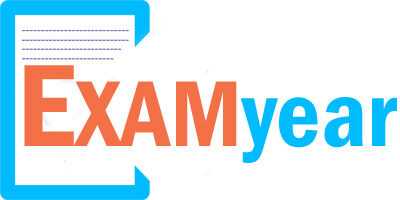PNB Manager Law Previous Year Question Papers for Specialist Officer Post
1. How many kinds of punishments are there under the Indian Penal Code?
(a) Four
(b) Five
(c) Six
(d) Seven
2. The Indian Penal Code, 1860 came into force on
(a) 1st September, 1872
(b) 1st April, 1861
(c) 1 January 1862
(d) 6th October, 1860
3. Who was the Chairman of the Committee that drafted Indian Penal Code?
(a) James Stephen
(b) Kenny
(c) Lord Macaulay
(d) D.F Mulla
4. How many stages of Crime are there?
(a) Three
(b) Four
(c) Five
(d) Six
5. Which section of Indian Penal Code defines Government Servant?
(a) Section 14
(b) Section 15
(c) Section 16
(d) Section 17
6. The term for which the Court directs the offender to be imprisoned in default of payment of a fine shall
(a) not exceed one-fourth of the term of imprisonment which is the maximum fixed for the offence, if the offence be punishable with imprisonment as well as fine
(b) not exceed half of the term of imprisonment which is the maximum fixed for the offence, if the offence be punishable with imprisonment as well as fine
(c) not exceed one-third of the term of imprisonment which is the maximum fixed for the offence, if the offence be punishable with imprisonment as well as fine
(d) none of these
7. In case of offence punishable with fine only, an offender who is sentenced to pay fine exceeding Rs. 100, the imprisonment in the default of payment of fine shall not exceed
(a) two months
(b) three months
(c) six months
(d) none of these
8. An offender has been punished for the imprisonment not exceeding six months. What will be the maximum period of solitary confinement in such case?
(a) it shall not exceed 15 days
(b) it shall not exceed one month
(c) it shall not exceed two months
(d) none of these
9. In which of the following case the right to private defence do not extend to cause death of offender?
(a) Rape
(b) Gratifying unnatural lust
(c) Causing miscarriage
(d) Kidnapping
10. Sexual intercourse by a man with his wife is a rape if she is below age of
(a) 17 years
(b) 15 years
(c) 19 years
(d) 18 years
11. A puts his hand in pocket of B for stealing money but pocket was empty. A is
(a) Guilty of theft
(b) Not guilty of theft
(c) Guilty of attempt to commit theft
(d) Not guilty of any offence
12. For abduction under the Indian Penal Code, an abducted person should be
(a) less than 16 years of age
(b) less than 17 years of age
(c) less than 18 years of age
(d) of any age
13. Which section of Indian Penal Code defines ‘sedition’?
(a) Section 122
(b) Section 123
(c) Section 124
(d) Section 124-A
14. A instigates B to cause injury to C, but B refuses it. Has A committed any offence?
(a) A is guilty of abetting B
(b) A is not guilty of abetting B
(c) A has not committed any offence because no injury was caused to C
(d) None of these
15. A gave poisonous sweet meet (halva) to B with the intention to kill him. B kept it on a table to eat later. C a child came there and ate it and subsequently dies.
(a) A is guilty of C’s murder
(b) A is not guilty of C’s murder
(c) None of these
16. How many exceptions are available against murder under the Indian Penal Code?
(a) Four
(b) Five
(c) Six
(d) none of these
17. Hurt has been defined under ________of the Indian Penal Code.
(a) Section 318
(b) Section 319
(c) Section 320
(d) Section 312
18. Wrongful restrain has been defined under ________ of the Indian Penal Code.
(a) Section 338
(b) Section 339
(c) Section 340
(d) Section 341
19. Who can be kidnapped from lawful guardianship under section 361 Indian penal Code?
(a) a person under 18 but above 16 years of age if male
(b) a person under 18 years of age if female
(c) a person under 16 years of age if female
(d) all of these
20. Offence of theft is related to
(a) movable property
(b) immovable property
(c) both (a) & (b)
(d) none of these
21. What is the offence whereof the preparation is punishable?
(a) Theft
(b) Murder
(c) Dacoity
(d) Rape
22. Which among the following is not an essential of Criminal breach of trust?
(a) Misappropriation
(b) Negligence
(c) Entrustment
(d) Disposal of property
23. The word “Complaint” has been defined under section ________of the Code of Criminal Procedure.
(a) 2(a)
(b) 2(b)
(c) 2(c)
(d) 2(d)
24. The Court has power to issue warrant in lieu of summon in certain circumstances. In which section of Code of Criminal Procedure, 1973 has this provision been mentioned?
(a) Section 85
(b) Section 86
(c) Section 87
(d) Section 88
25. Court of a Chief Judicial Magistrate may pass any sentence authorised by law except a sentence of death or of imprisonment for life or of imprisonment for a term not
(a) exceeding ten years
(b) exceeding seven years
(c) exceeding twelve tears
(d) none of these
26. The word “Warrant case” as used the Code of Criminal Procedure, 1973 means
(a) A case relating to an offence punishable with imprisonment for life or imprisonment for a term exceeding two years
(b) A case relating to an offence punishable with death, imprisonment for life or imprisonment for a term exceeding two years
(c) A case relating to an offence punishable for a term exceeding ten years
(d) None of these is correct
27. In case of cognizable offences police can arrest the accused
(a) without warrant
(b) without warrant but prior permission of higher police officer
(c) only with warrant
(d) none of these
28. In respect of investigation as provided under section 2(h) of the Code of Criminal Procedure Code, 1973 which of the following is not correct?
(a) Investigation can be conducted by police officer
(b) Investigation can be conducted by any person so authorised by Magistrte
(c) Investigation can be conducted by Magistrate himself
(d) Provision regarding investigation has been mentioned under section 2(h)
29. Any claim preferred to, or objection made to the attachment of, any property attached under section 83 of the Cr.P.C, by any person other than the proclaimed person shall be filed
(a) within two months from the date of such attachment
(b) within three months from the date of such attachment
(c) within five months from the date of such attachment
(d) within six months from the date of such attachment
30. Provision regarding lodging FIR has been mentioned in _______ of the Code of Criminal Procedure, 1973
(a) Section 154
(b) Section 158
(c) Section 164
(d) Section 172
31. The power to direct investigation by Magistrate has been provided under _________ of the Code of Criminal Procedure, 1973.
(a) Section 155
(b) Section 156(3)
(c) Section 157
(d) Section 158(1)
32. Section 167 of the Code of Criminal Procedure provides about the ________ of an accused.
(a) Inquiry
(b) Confession
(c) Remand
(d) Substantive evidence
33. What will be the maximum period for judicial custody, where the investigation relates to an offence punishable with death, imprisonment for life or imprisonment for a term of not less than ten years?
(a) Sixty days
(b) Ninety days
(c) Thirty days
(d) None of these
34. Provision regarding F.R.(Final Report) has been mentioned under _____ of the Code of Criminal Procedure, 1973.
(a) Section 168
(b) Section 169
(c) Section 170
(d) Section 171
35. Section 125 of the Cr. P.C is applicable to
(a) Hindus
(b) Muslims
(c) Christians
(d) All of these
36. Section 190 of the Code of Criminal Procedure, 1973 provides for taking cognizance by the Magistrate
(a) on police report filed under section 173 of the Code
(b) on complaint within the meaning of the section 2(d) of the Code
(c) Suo motu
(d) all of these
37. Which of the following systems is followed in India for dispensation of criminal justice?
(a) Adversarial system
(b) Inquisitorial system
(c) Common Law system
(d) None of these
38. Which sections of Criminal Procedure Code provide about summary trial?
(a) Section 238 to Section 250
(b) Section 251 to Section 260
(c) Section 255 to Section 265
(d) Section 260 to Section 265
39. Under section 259 of the Code of Criminal Procedure a magistrate, has the power to convert a summons trial to a warrant trial relating to an offence punishable for a term exceeding
(a) six months
(b) one year
(c) two years
(d) none of these
40. Provision of Anticipatory bail has been mentioned under _________of the Code of Criminal Procedure,1973.
(a) Section 436
(b) Section 437
(c) Section 438
(d) Section 439
41. Which section of the Code of Criminal Procedure, 1973 provides about the inherent power of the High Court?
(a) Section 481
(b) Section 482
(c) Section 483
(d) Section 484
42. Which among the following irregularities vitiate the proceedings?
If any Magistrate not empowered by law to do any of the following things, namely
(a) to issue a search-warrant under section 94
(b) to order, under section 155, the police to investigate an offence
(c) to hold an inquest under section 176
(d) attaches and sells property under section 83
43. Under Section 439 of Code of Criminal Procedure, 1973 the jurisdiction to cancel the bail vests with
(a) The Court of Session
(b) The High Court
(c) The Court of Magistrate
(d) Only (a) & (b)
44. Which among the following is not correct?
There shall be no appeal by a convicted person in any of the following cases, namely
(a) where a High Court passes only a sentence of imprisonment for a term not exceeding six months or of fine not exceeding one thousand rupees, or of both such imprisonment and fine
(b) where a Court of Session or a Metropolitan Magistrate passes only a sentence of imprisonment for a term not exceeding three months or of fine not exceeding two hundred rupees, or of both such imprisonment and fine
(c) where a Magistrate of the first class passes only a sentence of fine not exceeding one thousand rupees
(d) where, in a case tried summarily, a Magistrate empowered to act under section 260 passes only a sentence of fine not exceeding two hundred rupees
45. Under which Section of Code of Criminal Procedure, 1973 an accused can himself be a reliable witness?
(a) Section 315
(b) Section 300
(c) Section 313
(d) Section 317
46. Which of the following sections provides prosecution of judges under Cr. P.C. 1973?
(a) Section-195
(b) Section-196
(c) Section-197
(d) Section-198
47. The procedure for inquest is mentioned in ______ of the Code of Criminal Procedure, 1973
(a) Section 173
(b) Section 174
(c) Section 176
(d) Section 172
48. Which one is not correct?
(a) The Narcotic Drugs and Psychotropic Substances Act, 1985 applies to all citizens of India
(b) The Narcotic Drugs and Psychotropic Substances Act, 1985 applies to all citizens of India outside India
(c) The Narcotic Drugs and Psychotropic Substances Act, 1985 applies to all persons on ships and aircrafts registered in India
(d) The Narcotic Drugs and Psychotropic Substances Act, 1985 does not apply to a citizen of India outside India
49. Section 9A of the Act relates to:
(a) Power of Central Government to permit, control and regulate
(b) Power to Control and regulate Controlled substances
(c) Power to add to or omit from the list of Psychotropic substances
(d) None of these
50. The Narcotic Drugs and Psychotropic Substances Act, 1985 came into force on
(a) 1st November 1985
(b) 10th November 1985
(c) 14th November 1985
(d) 30th November 1985



